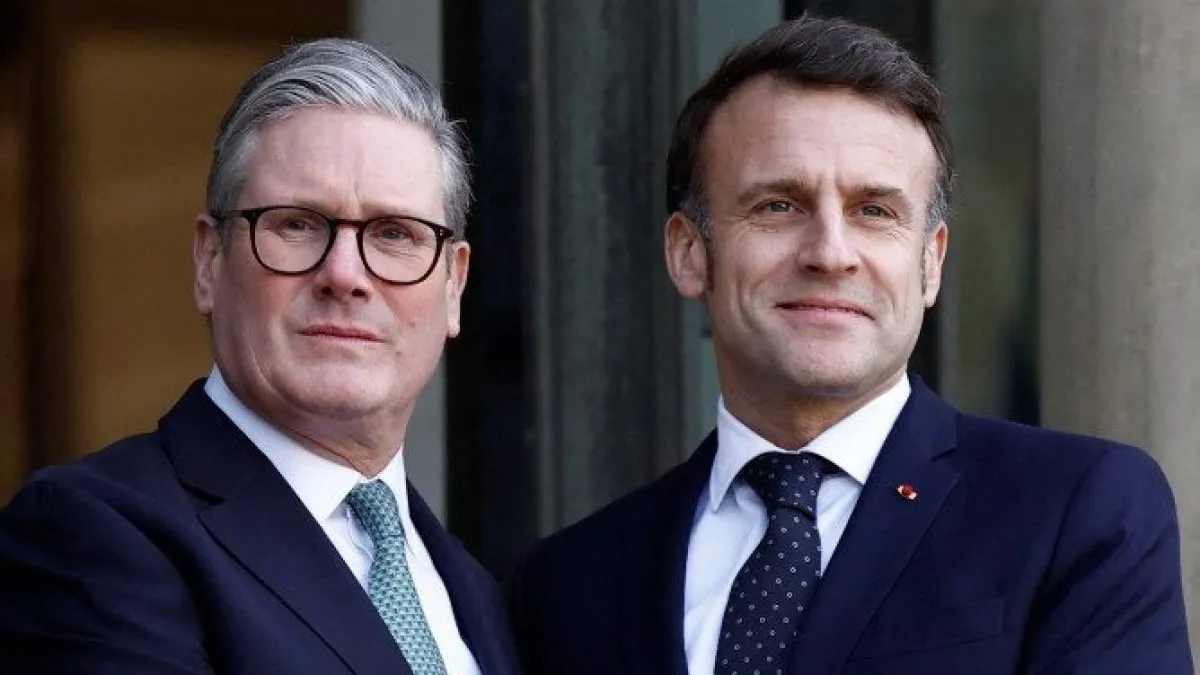
On the third anniversary of Russia's invasion of Ukraine, European nations are experiencing a significant transatlantic rift with their ally, the United States. Under President Donald Trump's administration, the US and Russia have initiated peace talks, notably excluding Ukraine and Europe from the process. This exclusion has spurred European leaders to explore ways to offer security guarantees to the war-torn nation of Ukraine.
This month, President Trump engaged in discussions with Russian President Vladimir Putin, agreeing to hold peace talks with Russia. This development has raised concerns among European leaders and Ukrainian President Volodymyr Zelenskyy about their exclusion from these crucial talks. Zelenskyy emphasized at the Munich Security Conference, "No decisions about Ukraine without Ukraine... Europe must have a seat at the table when decisions about Europe are being made."
In response, French President Emmanuel Macron hosted an emergency summit at Elysee Palace in Paris on February 17 to discuss potential security guarantees for Ukraine. Meanwhile, top diplomats from the US and Russia held talks in Saudi Arabia without the presence of Ukraine or European representatives, focusing on mending US-Russia relations.
Following these events, President Trump and President Zelenskyy have been involved in a heated exchange of words. Trump labeled Zelenskyy a “dictator” and accused Ukraine of instigating the war with Russia. In turn, Zelenskyy criticized Trump for living in a “disinformation space” influenced by Russia.
The leaders of the 27 European Union countries are set to convene for an emergency summit on March 6 in Brussels, as announced by European Council President Antonio Costa. The agenda will focus on Ukrainian and European security. Costa noted, "We are living a defining moment for Ukraine and European security."
The EU is reportedly formulating a military aid package for Ukraine valued at a minimum of 20 billion euros (approximately $21 billion). According to Politico, this aid package could include cash and military hardware, such as missiles and artillery shells. EU foreign policy chief Kaja Kallas is advocating for replenishing military aid to Kyiv. Meanwhile, the Trump administration is retreating from providing security guarantees to Ukraine, urging Europe to take the lead.
European countries face the challenge of addressing Russia's territorial ambitions, which could be exacerbated by the US's stance. Keir Giles, a senior consulting fellow at Chatham House, highlighted that US leaders appear to be employing "hostile leverage" to ensure Russia's peace terms are accepted.
European leaders, including Macron and UK Prime Minister Keir Starmer, are planning to visit Washington this week in an attempt to persuade Trump to maintain support for Ukraine. Starmer and Macron have agreed that Europe must "show united leadership in support of Ukraine in the face of Russian aggression."
Macron will meet Trump at the White House, while Starmer is scheduled to visit later in the week. Macron expressed his intentions to convey to Trump, "Deep down, you cannot be weak in the face of President Putin. It's not you. It's not what you're made of, and it's not in your interests."
Starmer emphasized at the Scottish Labour Party conference, "After everything that they have suffered, after everything that they have fought for, there could be no discussion about Ukraine without Ukraine, and the people of Ukraine must have a long-term secure future."
As Ukraine marks the third anniversary of Russia's invasion, numerous global leaders have traveled to Kyiv to demonstrate their support. Notable figures, including European Commission President Ursula von der Leyen and Canadian Prime Minister Justin Trudeau, have been welcomed by Ukrainian officials. Other leaders present in Kyiv include Spanish Prime Minister Pedro Sanchez, Latvian President Edgars Rinkevics, and Estonian Prime Minister Kristen Michal, among others.
Ursula von der Leyen expressed in a social media post, "Let's be clear: a free and sovereign Ukraine is not only in the European interest. It's also in the interest of the entire world."